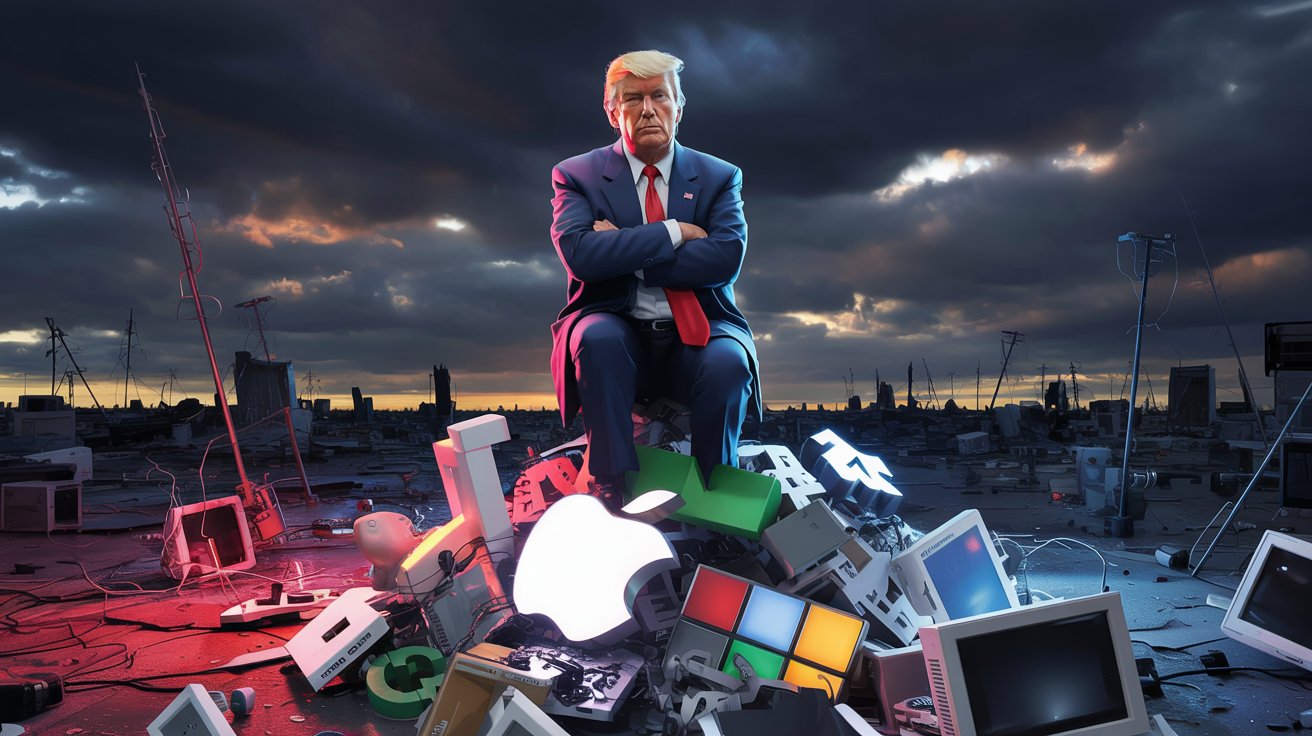Trump’s Impact on Tech, Intel and TSMC Forge Partnership, and OpenAI Achieves Historic Fundraising

Impact of Trump’s Tariffs on the Stock Market and Tech Industry
Recent Developments
Late Wednesday, former President Trump’s announcement of high tariffs took many investors by surprise, leading to a significant drop in tech stocks and overall market performance. Thursday saw a steep decline in stock values, with many experts believing that the full effect of the tariffs has yet to be felt. Market analysis suggests a looming risk of recession, sparking concerns about the stability of the economy.
The Repercussions of Tariffs
Trump’s decision to impose tariffs raises alarms about its potential to drive the economy into a recession. Analysts argue that there is little strategic rationale behind these tariffs, questioning the motives of Trump’s policies. Such sudden moves by political figures can cause considerable fluctuations in stock markets, leading to uncertainty for investors.
These tariffs have not only disheartened existing investors but have also stalled planned initial public offerings (IPOs) in the tech sector, notably affecting companies like Klarna and StubHub. On the other hand, CoreWeave’s stock showed some resilience, performing better than initially expected during this tumultuous period.
Tech Sector Collaborations
In the semiconductor industry, Intel and TSMC secured a preliminary agreement for a joint venture, with TSMC acquiring a 20% stake in Intel’s manufacturing facilities. The effectiveness of this partnership, however, will depend heavily on the specifics, which remain unclear at this time.
Qualcomm is also making headlines with potential acquisitions, including chipmaker Alphawave, and has recently bought Vietnamese AI research company MovianAI. These moves indicate a growing trend of consolidation and investment in the tech sector, particularly in areas related to artificial intelligence.
Funding Frenzy in AI
OpenAI recently raised an astounding $40 billion, complicating venture capital statistics significantly. Despite the rapid advancement of the company within the AI landscape, such a valuation creates pressure for maintaining performance. Trump’s tariffs may dampen growth in this sector by increasing costs related to data center components, leading major corporations like Alibaba and Microsoft to reconsider their data center investments.
Despite these challenges, funding for AI development persists. Notable funding rounds include Alphabet’s spinout Isomorphic Labs raising $600 million and Runway AI securing $308 million. A recent Gartner report highlights a worrying trend, suggesting that consumers are unenthusiastic about AI features being integrated into their devices—implying a forced adoption rather than genuine interest.
Transformations in Cybersecurity
Artificial intelligence is poised to redefine the cybersecurity landscape sharply. A new study reveals that AI systems are now outperforming human teams in identifying vulnerabilities and threats, prompting heavy investment in AI-driven cybersecurity solutions. Companies like ReliaQuest and Cyberhaven have successfully raised substantial funds to enhance their AI capabilities in protecting sensitive data.
Ongoing Regulatory Matters
The political atmosphere remains charged as Trump announced plans to extend a ban on TikTok by an additional 75 days. This move adds more uncertainty to the digital landscape and raises questions about possible regulatory actions affecting not just TikTok, but other foreign tech firms as well.
Key Highlights from the Week
Funding Developments
- OpenAI’s $40 billion round leads to a post-money valuation of $300 billion.
- Siemens plans to acquire life sciences R&D company Dotmatics for $5.1 billion.
- Isomorphic Labs and Runway AI raise significant amounts for their respective AI projects.
Market Reactions
- Trump’s tariff measures cause declines in tech stocks across the board.
- TSMC’s tentative deal with Intel raises questions about future semiconductor production strategies.
New Technologies and Partnerships
- AI tools are increasingly being integrated into business operations.
- Various startups are producing innovative AI solutions aimed at enhancing productivity and efficiency.
As companies continue to navigate through these dramatic changes in the market and regulatory environment, the responses from investors, tech firms, and economic analysts will unveil the broader implications of Trump’s tariffs and other strategic decisions in the tech industry.






